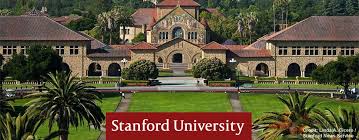AJETUNMOBI’S MONDAY INSIGHT: POSTGRADUATE STUDIES ABROAD – 9 THINGS YOU NEED TO KNOW

With
Tope Ajetunmobi
“Tope is a petroleum engineering graduate of Imperial College, London, United Kingdom, and a first class chemical engineering graduate of Obafemi Awolowo University, Nigeria”
It is no news that the current rate of unemployment in Nigeria is alarming. Last week alone, about 7-10 youths lost their lives while trying to get into the stadium to write the aptitude tests organised by the Nigerian Immigration service. My last article focused on making the best use of university days in an attempt to discourage searching for jobs which are not currently available. A viable option is to seek additional qualifications abroad so as to widen the job search spectrum; more so an additional qualification abroad gives you an edge over your colleagues in the job search. This week, I will also share some tips on what you need to know to secure a postgraduate admission abroad:
1) The one-year rule: Always start the application process one year in advance at a minimum. For fall admissions (August/September), many schools start making their decisions as early as in December of the previous year. More so, funding/scholarship applications have very early deadlines. To be on the safe side, send in your applications early using the one-year rule.
2) Mentorship: Look out for mentors – usually senior colleagues who have trodden the same path as your intended path. They surely will give you all the tips regarding scholarship opportunities, personal statements and acing the GRE/GMAT. In short, virtually everything you need to know. I always prefer seeking advice from mentors (who have gone through the system) to reading “fancy statements” on the website of graduate schools about how excellent the program is.
3) Safety: In simple words: don’t put all your eggs in one basket. I mean apply to the “good”, the “bad” and the “ugly” schools! Even though you might not be lucky to secure an admission to the crème de la crème (such as Ivy League schools), averagely ranked schools might offer more funding/scholarship opportunities and might give you an opportunity to prove yourself in the international community. You could always switch to another school later on once you have found your feet.
4) Watch out for good ambassadors: Ambassadors are alumni who have done (or are doing) extremely well in grad school. I will share an example to illustrate this fact: One of my mentors who finished his PhD in the University of Arkansas did so well that at least four graduates of OAU were admitted to the grad school as a result of his outstanding academic achievements. We are now in the internet age; you can network/cyber shake with virtually anyone via facebook, LinkedIn, and other social networking sites. I have networked with at least a thousand unknown people all over the world whom I have learnt a lot from – thanks to the social media.
5) Expand your options geographically: Don’t be misled that UK and United States are the only places to pursue a postgrad! For the US or UK, remember that without a scholarship or a graduate assistantship, it is virtually impossible to pay your school fees except your dad is a “Dangote” or a Nigerian politician. There are many great locations which offer free tuition like Sweden, Norway, and Denmark and also offer funding/scholarship opportunities. I will not forget to talk about Canada: a country offering excellent postgraduate education, funding/scholarship, employment and possible citizenship for many international students.
6) Preparation! Preparation! Preparation: My favourite tip! If America is your preferred route, the only trick to smashing the GRE/GMAT is preparation, preparation and preparation. Prior to August 2011, even first class graduates didn’t score more than 1100-1200 without adequate preparation. Not sure whether the format for the verbal section in GRE has changed but I recall that if you ever needed to get a high score in the 1450-1550 range, you needed to memorise at least a 3500-word list in test preparation booklets such as “Barons”. Look for the books- Barons, Kaplan, ETS etc….Ignorance is not an excuse not to smash the GRE/GMAT. The higher your score, the greater your chances of getting into the graduate program/school of your choice.
7) SOPs (Personal statements): This is an opportunity to demonstrate your unique abilities and sell yourself to the graduate selection panel. Why the school? Why the program? Any non-academic achievements such as leadership, sportsmanship, team-work, that will make you stand out in the application process? Any past projects (academic, non-academic that demonstrate your technical and non-technical abilities? Any indicators to measure success? I know at least three people with average GRE scores and college grades that got admitted into top-ranked grad schools solely because of their outstanding essays. A word of caution -Plagiarism is an abomination! Even though you can have a look at award winning SOPs, trying to copy them is the surest way not to get admitted.
8) Good References: References on your CV are also extremely valuable. Look for a variety of referees from academic to work to project to non-academic related (leadership, team-working skills etc). Never select multiple referees who only make mention of the same quality/ability you possess. A simple rule is to select three referees: one academic, one project/work based and one non-technical who will describe your leadership, team-work or sportsmanship attributes.
9) Research advisors: One of the secrets many people will never tell you! Make the best use of the internet! The emails and resumes of majority of graduate school advisors flood the internet. Do your home-work. Find out research interests of advisors, checking out interesting projects they have worked on or are currently working on. You can also get a glimpse of how much grants are allocated to them for research. Feel free to send them an email and tell them you will like to work with them. This gives you an edge in getting funding/scholarship and recommendation from advisors during the final selection panel.
In summary, there is a no “one-size-fits-all” solution. . Getting admission into a grad school of your choice is always a combination of good undergraduate grades, GRE/GMAT scores, personal statements (SOPs), references, and recommendation from a graduate advisor.
Now what? What do you do while waiting for a decision from the admission committee? Never stay idle. Keep applying for jobs, developing other skill sets which could help improve your CV; join charity groups, develop a sport, learn a language, start a business. The list is endless…Just make sure the brain cells are not going into hibernation… OK, time to stop. See you another time…have fun guys and ladies…
8. EDUCATIONAL POLICY: It is unfortunate that the curricula used in our educational institutions are not in tune with the demands of the labour market. Any student who wants to be employable needs to be conversant with the current trends in their fields.
SUBSCRIBE TO JARUSHUB FOR MORE TIPS ON JOBS & CAREER
[subscribe2]
The pedagogical approach used by our teachers and professors does not equip our students to be problem solvers and creative thinkers but merely prepares them to regurgitate facts and maybe come out with good grades.
It is good to come out with good grades and regurgitate facts, but a good problem solver and creative thinker will succeed as a job creator and will climb the corporate ladder faster.
For more discussions on education and careers, join our forum, HOTPROFORUM
MAKE MONEY SELLING JARUSHUB CAREER BOOK
Attend JarusHub Employability and Career Advancement Class and get ahead in your career!
SUBSCRIBE TO JARUSHUB FOR MORE CAREER TIPS
[subscribe2]
Established in March 2013, JarusHub is a Nigerian information hub with focus on career and management. It is rated Nigeria's most authoritative destination for online career resources. It parades an array of Nigerian professionals who share their career experiences with a view to bridging career information gap and mentoring a generation to success. Whether you're a student, a recent graduate or an established professional, or even an executive, you will always find something to learn on JarusHub. All enquiries to jarushub@gmail.com or 0808 540 4500. Facebook: www.facebook.com/jarushub; Twitter: @jarushub or @mcjarus.
Attend JarusHub’s 2024 Seplat Assessment Center Coaching
October 29, 2024
7 comments
Let us have your say by leaving a comment belowCancel reply
Recommended For You
-
JARUS ON SUNDAY: Reflections on Graduate Unemployment in Nigeria
November 10, 2013 -
CV review sample 2
April 26, 2013 -
Msc Econs or ACCA?
September 10, 2013











Thank you sir for this very important information. I have been following your articles for the very begining and I want to ask you the question a friend I introduce this platform to asked me. What are the chances for a National open university of Nigeria have to get addmitted for a postgraduate degree With a 2.1 finishing 2015. Thank you very much sir for this very informative tips
I don’t know much about NOUN. But I don’t think their certificates are rejected for PG studies in Nigerian universities
[…] When I input this search term “tips for getting scholarships abroad from Nigeria” into the search box, it came up with this beautiful post on Nairaland. I opened it and found out someone actually copied the post from another site to Nairaland. It was duly referenced though. The site goes by the name of JarusHub.com […]
[…] post is referenced to JarusHub.com from Naira […]
Love ur encouraging words…
Good write up. Pls I want to ask if it is possible to get a PhD scholarship abroad with a B.Sc of 2.2 and M.Sc (a PhD grade) both from Nigeria Univeristy. And does age has anything to do with the selection process.
pls any info about germany for PhD.